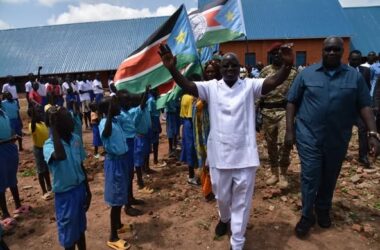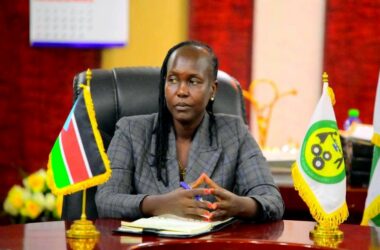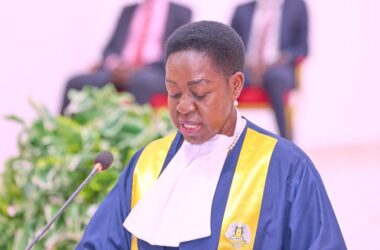By Lodu William Odiya
United Democratic Front (UDF) has urged the government to fund National Election Committee (NEC) and the National constitution review committee (NCRC) in order to prepare for 2026 elections.
speaking to the media during UDF Registration first Anniversary and Launch of new national executive office yesterday, the chairperson of the party, Bona Deng Lawrence called on government to support election institutions.
“We urge the government to fund the National Election Committee and the National Constitution Review Committee adequately and timely, to enable them execute their residual activities that would move the country towards elections that comes next year” he said
South Sudan general election is due to be held in South Sudan in December 2026, the first since independence.
Deng appealed to the regional bodies and international communities to further render necessary assistant to the commissions in charge of the election.
“We equally urge the international community and our regional blog, AU, IGAD and others to render technical support to the commissions for a free, fair and credible elections to be realized. It isa collective responsibility and each of us should play their roles” he said.
The chairperson further called upon people who carry arms against the state adding that, politician fueling and sponsoring pockets of rebellion for self-interest to cease.
“Enough is enough, you are harming your own people. Give your people a chance to live a decent and dignified life”. He spoke.
However, UDF also condemned he sanctions imposed on South Sudan stating, it weakens the military capabilities to protect the borders and hinders reunification and training of the organize forces.
“I would like to urge and call upon the African Union, Intergovernmental Agency for development to continue calling for lifting of sanctions from the republic of South Sudan. The western world is not helping Africa, they are dividing us, to exploit our resources” he explained.
The postponement follows a history of failed attempts to hold elections, beginning with the first planned election in 2015, which was derailed by the outbreak of conflict in 2013 and 2016.
This, in turn, led to the collapse of the Agreement on the Resolution of the Conflict in South Sudan (ARCSS).



